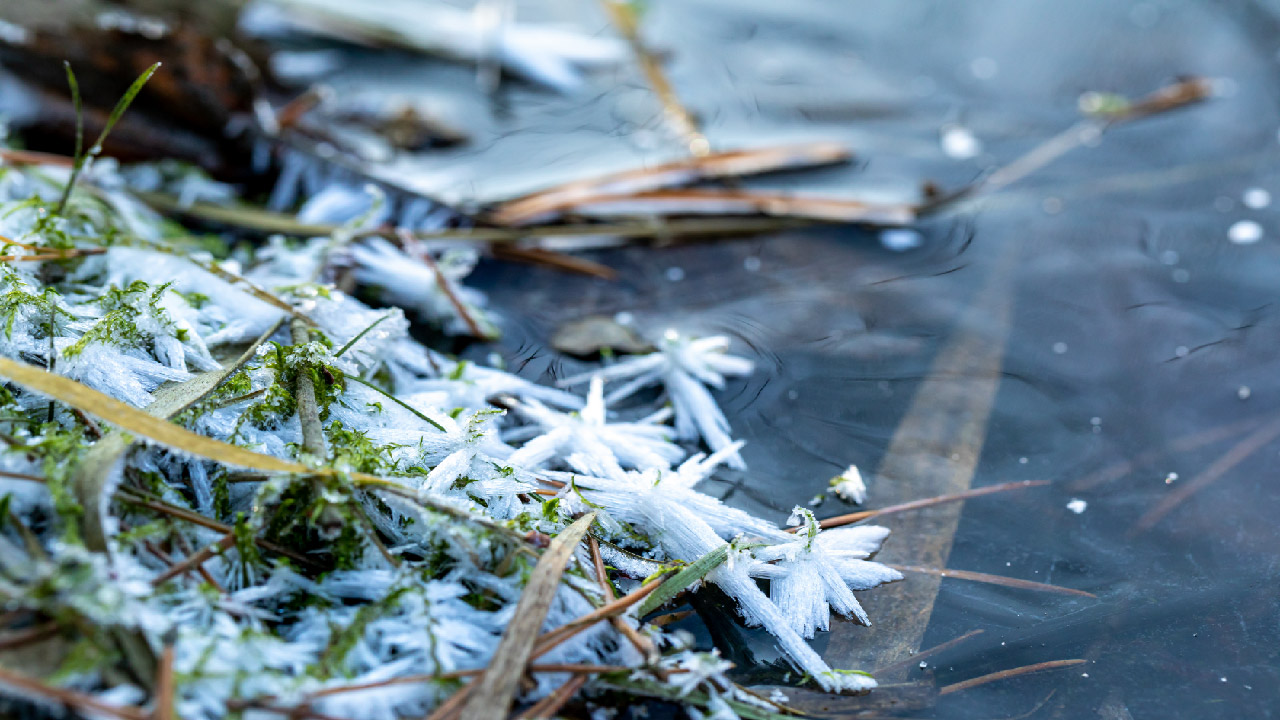How to Winterize a Pond with Fish
Apr 12th 2023
Have you ever wondered what happens to fish in ponds and lakes during the winter? When the mercury drops, we humans can go inside and flip on the furnace or huddle by the heater.
For our friends the fish, it's a different story. If left in the pond outside your home or business, they must survive the cold.
Hardiness and Fish Species
Some common fish kept in ornamental ponds, like goldfish and koi, can survive in ponds if the water doesn't completely freeze top to bottom. Other species, such as tropical fish, won't make it through a frigid winter outdoors.
Although it's possible to bring your fish inside if you live in an area with freezing winters, it's a hassle. But if you have tropical fish, that's your only option for cold winters.
Hardier species of fish can survive cold temperatures. With a little planning and preparation, you can make sure they will survive the winter and continue to add life and beauty to your water feature in the spring. DripWorks is happy to share a few tips on how to winterize a fishpond.
Surviving the Winter
There are two main dangers to overwintering fish: their watery environment could freeze solid, or toxic gases could get trapped in a pond by a sheet of ice that forms on its surface.
Making a hole in the ice is a great way to prevent both these problems. You can do this with a heat source or physically. Make sure to keep the hole open as winter proceeds. Besides letting toxic gases escape, a hole will allow life-giving oxygen to come in. In addition, you will be able to peek at your fish through the hole.
Don't brush away snow either. It will help keep the hole open. Snow will also add a blanket of insulation.
To prevent toxic substances to build up in the pond over the winter, give your pond a good cleaning in the fall. Remove leaves and debris. Cut back overhanging shrubbery on the sides and prune pond plants. Add some beneficial bacteria to take care of your pond and help keep the water clean over the winter.
The metabolisms of many fish species will begin to slow at 60º F. At 50º F, most will enter a dormant phase. You will not need to feed them over the winter when fish are dormant. In fact, feeding will only add to the toxic materials in the pond as food and waste decompose.
If you live in a place with relatively mild winters, you can keep the pond pump going. For cold winters, turn off the pump, clean its filter and remove any parts sticking above water so they don't freeze. It's also possible to use machines like a pond heater and a pond de-icer to help keep the water warmer.

